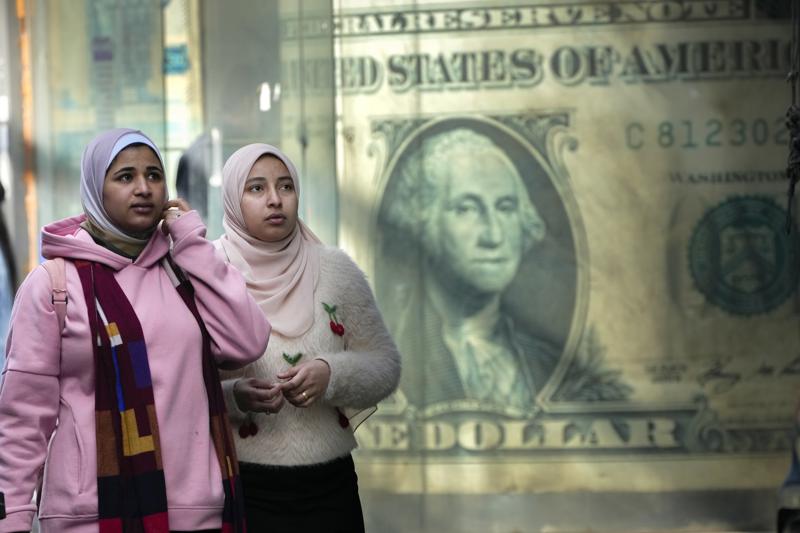CAIRO (AP) — Egypt’s annual inflation rate set a record high in June, as the most populous Arab country continues to battle price hikes and a depreciating currency, the Egyptian statistics bureau said Monday.
The annual inflation rate reached 36.8% last month, up from 33.7% recorded in May, according to data released by the state-run Central Agency for Mobilization and Statistics.
Prices in Egypt rose across many sectors, from food items and medical services to housing and furniture following the Russia-Ukraine war, which unleashed a wave of inflation across the globe.
In Egypt, food and beverage prices, the main drivers of inflation, rose by 64.9% in June over the same time last year, the data released Monday showed. Grains, meat, poultry, fish, and fruit were among the products with the biggest price spikes.
The inflation rate last month more than doubled compared to June 2022 when it was at 14.7%.
Egypt, a country with over 105 million people, is the world’s largest wheat importer. Most of its imports traditionally come from Ukraine and Russia.
Even before the war, Egyptians suffered price hikes as the government embarked on an ambitious reform program in 2016 designed to reverse longstanding distortions in the country’s battered economy.
The program included painful austerity measures, such as slashing subsidies for fuel, water and electricity. In return, the government received multi-billion-dollar bailout loans from the International Monetary Fund. The latest loan was for $3 billion in December.
In recent months, the Central Bank of Egypt has tried to contain inflation, including raising its main interest rate and devaluing the Egyptian pound.
The moves set off an economic shock that hit millions of people who found their savings running low as the cost of living surged. About 30% of Egyptians are poor, according to official figures.
Since the war in Europe, the Egyptian pound has lost over 50% of its value against the dollar, trading Monday at over 30.80 pounds for $1.
This article first appeared on APnews.com







Leave A Comment